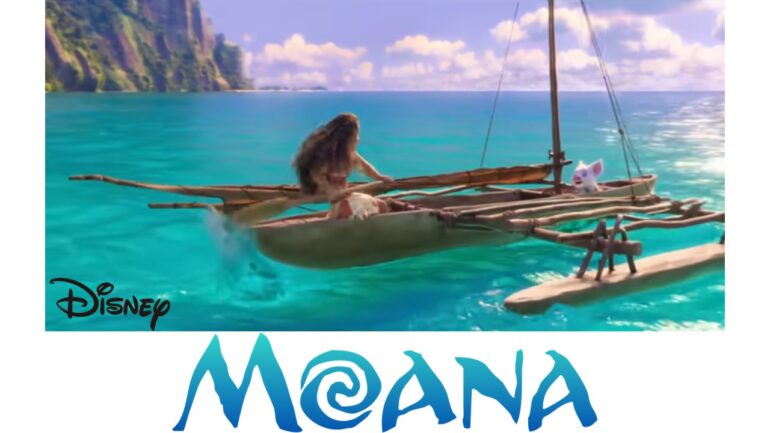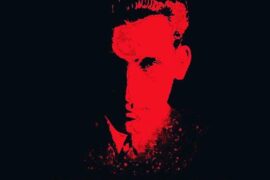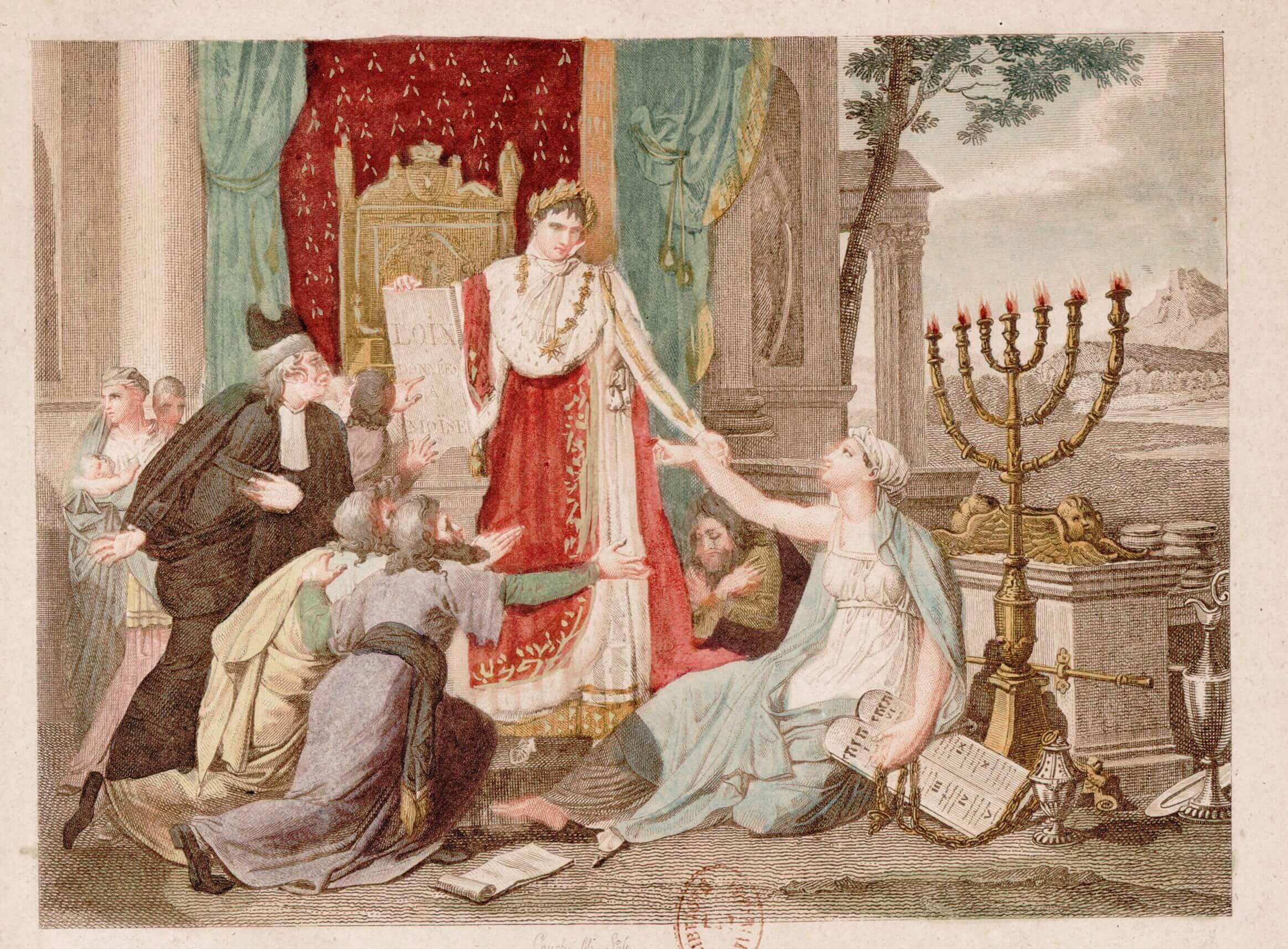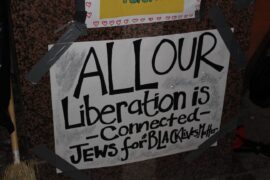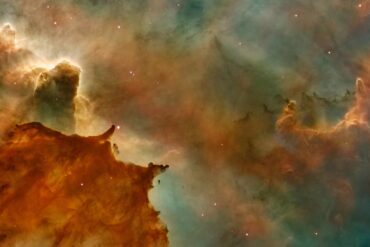In the Summer of 2016, Disney released a film entitled Moana, about a girl of the same name from a Polynesian Island who sets sail on a quest to reunite a mystical relic with a goddess, in order to cure a blight which has struck her island.
The first time I saw it I thought nothing more than “this is a great movie” (which it is). But after further reflection I was struck by how many similarities could be drawn between the movie’s plot and that of Jewish history, particularly the era we are currently living through.
Whilst the similarities are not perfect, I thought they were strong enough to warrant an article on the topic, to highlight these similarities and demonstrate what I believe the movie can teach us both about the current chapter of Jewish history and our people’s history as a whole.
(If you haven’t seen the movie, I would advise that you watch it before reading this article, because we will be discussing the plot in-depth and knowledge of what happens in the movie is needed to fully appreciate what’s going on here).
Moana’s people worship Te Fiti, the mother goddess who brought life to the ocean with her heart, a precious stone with the power to create life. Up until a thousand years before Moana was born, her ancestors were able to freely live their native lifestyle as voyagers with an intimate connection to the ocean.
We, Israel, serve the Creator of the universe (l’havdil), who brought all into being and continually sustains all of existence. Until roughly two thousand years ago, we were able to freely live our native culture as a nation in our land (with occasional breaks like during the Babylonian exile). We possessed a deep love and reverence for the soil which found expression in obeying the Divine command to let the land lie fallow once every seven years.
Then a terrible disaster struck Moana’s ancestors that forced them to radically alter their way of life. A demigod named Maui stole Te Fiti’s heart and a dark blight began to spread across the ocean, and for their own protection the ancient chiefs made the decision to discontinue their voyaging and confine themselves to the island of Motunui.
Two thousand years back in our past, Israel suffered a terrible disaster when the Roman legions broke through the walls of Jerusalem and razed the second Temple to the ground. (You might even say the Romans “stole our heart” – after all they did destroy the precious object through which we would bring life to the world).
Brutal persecution followed subsequent revolts and Jews were removed from Judea en masse. As a result, our ancient chiefs were forced to make radical changes to our lifestyle and culture, essentially uprooting our civilization and making it portable – converting it into a system of laws and rituals representing our national culture but downscaled to an individual and communal level.
This portable system of laws eventually became known as “Judaism.”
As the centuries passed, Moana’s ancestors were forced to live on their island for such an extended length of time separated from their ancient way of life – voyaging – that eventually they forgot they used to be voyagers and began self-identifying as mere inhabitants of Motunui. They even started to embrace life on the island and become emotionally attached to it, as is clear from the emotion displayed by Moana’s father Tui as he speaks to her on the mountaintop, imploring her to follow in his footsteps and raise Motunui even higher, “like I did, like my father did.”
So too, after many centuries of intense, unrelenting persecution in exile followed by an opportunity to gain acceptance within European society, we Jews (at least the Jews of Europe) ceased to identify as Judean refugees and began to perceive ourselves as natives of the host countries we dwelled in – as “Europeans with a Jewish religion” as oppose to members of a nation native to the Middle East unjustly exiled from our home country and yearning to return there.
Even though Moana’s ancestors were able to lead an idyllic existence on Motunui in the meantime, the darkness was always out there, always spreading and inexorably was always going to catch up with them in the end. So too, no matter where we settled outside our home country, the darkness – the tides of anti-Semitism – always followed us and would catch up with us eventually, forcing us to pack up and flee to someplace else; we were never allowed a permanent rest in the lands of exile.
This point of the film is where we stand in the current chapter of Jewish history.
The darkness has reached the shores of our islands and has begun to take hold, as seen by the dramatic upswing in anti-Semitism in the Diaspora in recent years. We have reached the point at which it has become impossible to live in security on our islands any longer (I am writing this while in the UK, which I suppose is a good example of an island where Jews were able to dwell in relative tranquillity until not too long ago).
We have now reached the same juncture Moana’s people faced. But how will we respond? Will we be like the adults who sat at the island’s council, insisting they will solve Motunui’s problems by digging new fields, building new Synagogues, establishing new committees? Or will we be like Moana and realize the answer does not lie in anything we can do for the island, but in the very situation that lands us here in the first place?
Many Diaspora Jews who grow up outside their land are deeply entrenched in the paradigm of being citizens of our host countries and relating to our Jewishness purely as a religion, often possessing deep emotional attachments to the communities where we were raised, and also fearing what may happen should we appear to be disloyal citizens and antagonize our gentile hosts. As a result, we often don’t want to know about being “Judean refugees who always yearned to return home” and vehemently deny any notion of a connection to Israel, even when the anti-Semitism around our communities intensifies and we begin to fear for our safety in the face of physical attacks. I believe it is the young Diaspora Jews, who perhaps have not yet formed such a close attachment to their host countries, who may be dissatisfied with life on the island and even feel an “inner voice” calling them away, who must be the ones to venture out and discover our ancient identity for themselves. We need Diaspora Jews like Moana.
When these Diaspora Jews return to the place where our ancestors lived – Eretz Yisrael – they can learn from Torah masters who, although they were not alive at the time of our national disaster, learned the Torah of our ancestors from their teachers, who learned it from their teachers et cetera et cetera, in an unbroken chain stretching back all the way to Sinai. In the film, this is represented by Maui teaching Moana the art of wayfinding while out at sea.
Another similarity is that our salvation from the blight of anti-Semitism and creating the world we are destined to create also depends on our reconnecting with our own roots (I must note here that while I recognize the Jewish people should not be treated as an “object with a problem” but rather as a “subject with desires” as Hebrew freedom fighter Yair Stern taught his followers, in this piece I am choosing to focus more on the aspect of rescuing Jewry from the Diaspora).
And young Jews who learn about their own identity can return on sheliḥut to the communities where they were raised and teach other Jews there, and thereby return them to their natural habitat and natural selves, just as Moana was able to teach what she learned to her people.
As mentioned above, I recognize that the similarities are not perfect; there are significant differences between the movie and Israel’s story which do need to be addressed. For instance, Maui, the one who stole the heart, is the same one to reintroduce Moana to the ways of her past. This will not be the case with us – the Romans became the progenitors of Western civilization, and the West will certainly not be the ones to reintroduce us to our authentic Jewish identity. While there do exist members of the West who claim to be able to teach us this, recovering our identity is solely up to us.
Also, Moana’s people were able to isolate on Motonui and live a peaceful, idyllic existence for the entire thousand years since Te Fiti fell, and the failing harvest at the start of the movie is the first time they are suffering from it. In contrast, throughout our exile the anti-Semitism has caught up with us numerous times, each time overwhelming us with brutal persecution and forcing us to “leave the island” (i.e. that Diaspora community) and relocate. We have only had brief, intermittent periods of quiet.
The central message, however, remains clear: We are an ancient people with a native way of life which we were forced to interrupt due to a disaster way back in our past. We lived for so long in our exilic existence cut off from our authentic way of life that eventually we became disconnected from it.
Now, however, anyone who looks at the rising anti-Semitism in the Diaspora would most likely agree that the darkness has caught up with us, and while it has not yet overwhelmed our “island communities” it is taking its hold and disrupting everyday life here – and it’s only going to spread further and deeper into our communities.
So to my fellow Diaspora Jews, if you’re reading this, I beg you with all my heart: Don’t listen to the elders of your community if they tell you that life in the Diaspora will continue unabated. It will not. And if the last two thousand years and surely the last hundred have taught us anything, it’s that nothing ever comes of all the efforts we invest in our host countries. All the work we do to “raise their islands higher” is for nought, for eventually the darkness always catches up with us, and if we insist on staying in exile it will either force us to move or else swallow us. It might happen in two years, it might happen in twenty, or it might happen next week, but it is inevitable. If we want to save ourselves, we have to return to our native land and eventually to our native culture and identity. Every single one of us can make this journey. And if we don’t…
There is a scene in the film in which Moana dreams she has sailed back to Motonui, and suddenly the palm trees on the beach turns to blackness and disintegrate. The shore and the rest of the island follow, and as Moana stands helpless on the boat she sees her parents dashing out onto the beach calling her name, but they are not quick enough. Even as she watches they are enveloped in the darkness swallowing the island, and she is powerless to do anything to stop it.
For us, for Am Yisrael, this is not a dream. We know full well what it’s like to try and deny the approaching darkness and maintain life on the island, and only when conditions become unbearable do we try to flee, but by then the darkness has grown too strong and consumes us along with the island. This is what happened to us in Europe not a hundred years ago.
But it doesn’t have to end this way for the rest of us.
There is a really wonderful image at the close of the movie which I feel a need to mention. The first chief of Motonui placed a slab of rock on top of the island’s highest mountain, and every subsequent chief – his descendants – placed another slab on top, creating a pillar of stone symbolizing their people’s life on the island from generation to generation. Just before the people depart to resume voyaging, Moana places the final item atop the pillar: a shell from the ocean.
I found this to be a truly beautiful image because it symbolizes how her people have come full circle – the beginning of their life on the island when their voyaging was interrupted, how they passed down their traditions from generation to generation, and how Moana made herself the last link in the chain – the link that brought her people back to their roots (or boats, if you will).
I believe this is the task of our generation: to become the link that brings our people back to our authentic selves. And like with Moana, this task is no longer an option, but a necessity, because life on the island is becoming untenable. But we can do it – we can be the ones to reconnect with our roots and bring our people full circle. We must.

